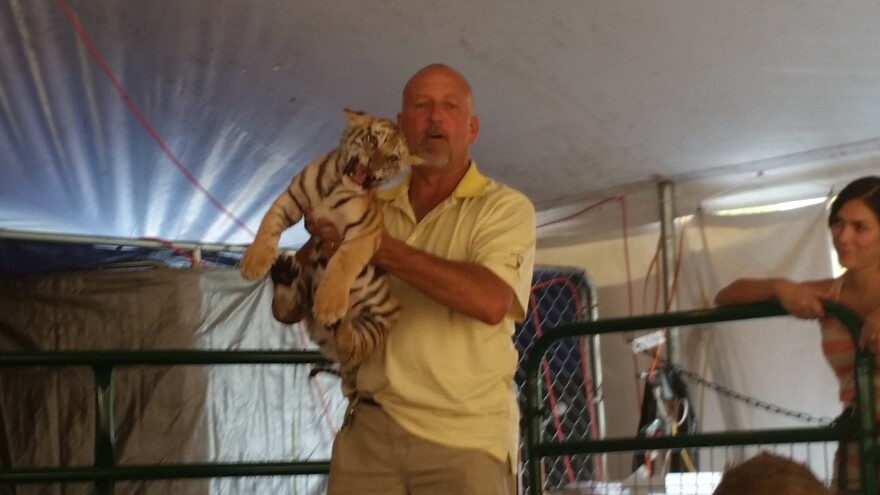Indiana state Sen. Michael Crider wants federal investigators to provide the public with an update on its investigation of a troubled exotic animal refuge in Charlestown, Ind.Crider, a lawmaker who has twice introduced legislation that would impose more regulations on certain exotic animal exhibitors in the Hoosier state, sent a letter late last month to a regional director of the U.S. Department of Agriculture, looking for answers about Wildlife in Need.Crider is one of several state legislators who have fielded inquiries from concerned citizens about the non-profit organization owned by Tim Stark, following aninvestigation of the animal refuge by the Kentucky Center for Investigative Reporting.“I’m just hoping to get some kind of information that they’re even actively working on this, that they potentially have some direction that the investigation might move so that I know a little bit more of what to expect,” said Crider, a Republican who represents Indiana’s District 28. “I think right now, nobody really knows what’s happening and when that’s going to come to some resolution.”KyCIR found that that Stark has beencited repeatedlyby USDA inspectors over the past several years for violations ranging from not having cages adequate enough to prevent big cats from escaping to not keeping proper records. Over the summer, Stark hosted a popular fund-raising event called Tiger Baby Playtime during which visitors could pay a fee to play with baby tigers in a group. USDA inspectors have also cited problems with that event.
In Indiana, residents can own exotic pets as long as they have a permit, but state law exempts people like Stark who have USDA licenses—for breeders, dealers and exhibitors—from those regulations. So even if there are complaints, state officials have no jurisdiction to go on the property. Related: State Laws Vary on Wild AnimalsTwice in the past two years Crider has proposed legislation that would have required dual jurisdiction, meaning those with USDA licenses would also have to comply with state regulations. Those bills never made it out of committee. USDA-license holders thought the federal requirements were tough enough, Crider said, and they didn’t want to be forced to notify neighbors that they have dangerous animals as required under state law.Crider plans to file the legislation again in January during the next legislative session.Last summer, a 48-pound leopard was shot and killed in a Charlestown yard not far from Stark’s property. Federal officials have acknowledged an open investigation of his operation but won’t provide details because they say it’s ongoing.Crider and several of Stark’s neighbors want to know where the investigation stands.The state senator said he has yet to receive a response from USDA.“The reality is, it was a challenge for me to even find somebody that I could identify as the person to send the letter to, which kind of adds to my concerns about this activity being totally regulated outside the state,” Crider said.If Crider had a question about a state permit, he said he’d know who to ask.“In this case, I’m not really sure that I even got the letter to the right person or that I can expect an answer anytime soon—at least before I have a deadline to file a bill for this next session,” he said.”The leopard was killed on the property of Charlestown resident Doris Armstrong. She supports a change in Indiana law.“If he’s gonna have the Wildlife in Need, I think all the neighbors should be notified of what type animals he has because half the people in this town don’t know what he’s got,” she said. “And a lot of what he’s got I believe could be very dangerous if it got loose.”This story was reported by Louisville Public Media's Kentucky Center for Investigative Reporting.


